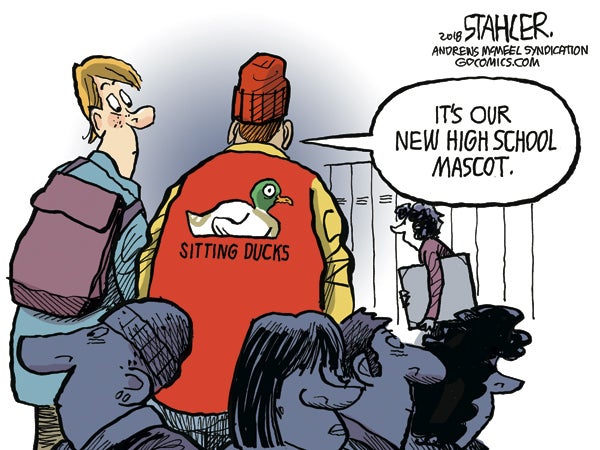Other Voices: A better way to boost school security
Published 7:48 pm Tuesday, April 17, 2018
If the North Carolina lawmakers who brush aside questions about sensible gun reform are serious about improving mental health care to prevent tragedies, they’ll put our money where their mouth is and heed the advice of those who say we need more resources. On April 9, leaders of state associations representing school psychologists and guidance counselors told a North Carolina House of Representatives panel studying school safety how short our state comes up now.
The focus on mental health comes after Parkland, Florida, school shooter Nikolas Cruz – who murdered 17 students and faculty at Marjory Stoneman Douglas High School – reportedly exhibited multiple “red flags” that went unchecked and did not prevent him from legally buying a semi-automatic assault rifle used in the massacre.
School counselors are often the initial contact for a troubled student or one with mental health concerns and may be “able to see some issues before they truly become severe issues,” Tim Hardin, an elementary school counselor and president-elect of the North Carolina School Counselor Association, told the lawmakers. In this state, though, we have one school counselor for every 386 students. That’s better than the national average but much higher than the recommended ratio of one counselor for every 250 students.
Access to school psychologists is far worse. This school year, the Associated Press reported, there is one school psychologist for every 2,100 public school students in North Carolina. That’s at least three times higher than the 500 to 700 students recommended by the National Association of School Psychologists. And it doesn’t reflect that 17 school districts don’t have a full-time psychologist employed this academic year, the AP reported based on information from the Department of Public Instruction.
Heather Lynch Boling, who works in Wake County schools and heads the North Carolina School Psychology Association, told the panel that most school psychologists are assigned to several schools or an entire district, and that they are given little or no time to actually evaluate students for potential mental health issues or provide mental health services to students who need them.
And it’s not always obvious who those students are, Boling said.
The professionals who spoke April 9 told legislators that hiring more psychologists and guidance counselors in North Carolina would help school officials identify students with mental health challenges sooner and could prevent severe violence. We think it’s a smart investment.
— The Dispatch, Lexington



